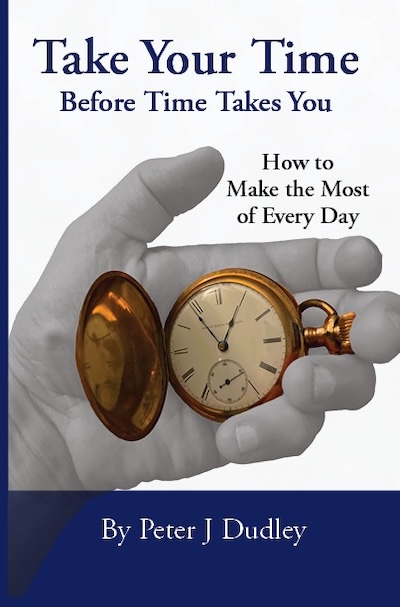Intelligence signaling leads to a surprising epiphany about living authentically (maybe)
Over the weekend I saw Tron: Ares. I liked it quite a lot. Not just because I’m a nerd and saw the first Tron movie in theaters in 1982. (I was 15 years old, and I already knew how to program in 6502 assembly language.)
But also because I found it an enjoyable fantasy film. (Some of my pedantic friends might insist it’s science fiction, but I’d classify it as fantasy. We can have whatever the pedantic version of arm-wrestling is later to decide the truth.)
So I went over to BlueSky to post that I liked the movie. Before posting, I searched to see what other people were saying.
What I found was a lot of intelligence signaling. Or maybe it’s culture signaling. I am not sure.
The majority of the posts I saw were of the same flavor as this actual headline: “Tron: Ares isn’t good enough to hate.”
One user said something like “Tron movies always suck but the merch is awesome.” (You wear merch for a franchise you think sucks?)
Another said, “The dumbest of the three films so far.” (But you did watch all three films. Also, my friend, you don’t need “so far” here. If it’s the dumbest of the three films now, it will be the dumbest of the three films for all time.)
There was so much of this “I watched it just so I could dunk on it and show you how smart and culturally aware I am” doublespeak that I almost didn’t post at all.
Which is not the world I want to live in. I’ve already been to high school. I’ve moved on. Life is too short to let this diminish my own joy. So I posted this:

I know that posting something like this on social media is essentially a pointless waste of time and resources. All it really does is use up power, cloud storage, and bandwidth.
Record scratch. Hold on.
Did I just intelligence-signal myself? Okay, hang on. Let’s break that down.
(I am composing this in real time, by the way… it will end up edited, but I did not plan this beforehand.)
What value did I get by hating on social media in that paragraph, even as I was talking about how I consume and contribute to social media? How did that protect me, my psyche, or my ego? What did that paragraph signal to you, my reader?
I think I intended to signal to you that I am smarter than other social media users. Even though I use social media, I am smart enough to see how pointless and wasteful it is. So I am smarter than the “real” users, who post believing that someone else will care what they said. But I know better!
And because you heard me say it, we are now both in on this secret truth. Now we have a cool in-group that knows more than everyone else. We are the smart ones, and anyone who thinks there’s actual value in social media is lame.
(You’re watching the writer in action here. I was about to delete the offending paragraph when I realized I was essentially doing exactly what I am complaining about in this post. Rather than delete the paragraph, however, I decided to call myself out. How meta of me.)
Anyway, let’s come back from our field trip, where we witnessed intelligence signaling in real time, from the person writing about how intelligence signaling is more destructive than helpful.
The original point of this post was to be that intelligence signaling stifles communication instead of enhancing it. We intelligence-signal because we want to protect ourselves from judgment… or, more to the point, we know we will be judged so we want to try to nudge people toward a certain kind of judgment.
It feels like we’re building trust by making sure we’re all in on the secret truth, but in reality it breaks down trust by creating a fake in-group/out-group dynamic. It distances and silences people who might actually agree with you, but who now feel they can’t speak up without also signaling that they’re part of your newly created in-group.
In a workgroup, intelligence signaling can flatten the creativity of a team and push everyone toward group-think. In these teams, the most powerful personalities drive decision-making instead of the most capable, intelligent, or creative minds.
I’m not sure that’s still the point of this post. I’m not sure how to conclude it. Other than to say that I am going to try to be more aware of when I am perpetrating this kind of intelligence signaling.
When I notice myself writing something that includes some kind of equivocation or backtracking, that should be a flag to examine what’s going on for me.
If my truth is that I quite enjoyed Tron: Ares, then that is my truth. I don’t need to add, “but I’m more cultured than the type of person who enjoys Tron movies.”
If I enjoy posting on social media, I either believe it’s worthwhile or I don’t. If I don’t, then I should stop doing it. If I do, then I don’t need to add, “but I’m smarter than people who think it’s worthwhile.”
This is about more than just how I present myself to the world. It’s also about better understanding myself so I can adjust my behavior toward a more authentic, more productive, and less wasteful existence.
Time is precious. I spent some of it watching a movie, posting about my experience, and then writing this article. It’s worth examining my motivations for using my diminishing time in those ways, and the benefits I have received and will continue to receive.
That’s the way to making the most of every day. And maybe that’s what this post really ends up being about. I think perhaps that’s what this entire blog ends up being about.
Connect with me
Schedule a consultation session now or drop me a line.

With Take Your Time Before Time Takes You, learn to make the most of every day through thought-provoking exercises and perspective-twisting stories. Get it now in paperback or ebook.
“It changed my life.” – TP, client
“A go-to guide for people who want to improve their lives but don’t know where to start.” – MJ, earlier reviewer

RELIT: How to Rekindle Yourself in the Darkness of Compassion Fatigue gives practical, actionable advice on avoiding and overcoming compassion fatigue and caregiver burnout. My chapter explains how I stay centered and focused so I can give every client my best, every time.
Download my chapter for free: Show up. Try hard. Be nice.
Or just go buy the whole book. It’s worth it.


